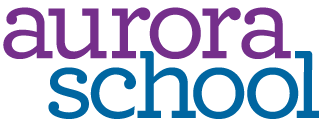Aurora School
Diversity, Equity & Inclusion
Appreciation for difference
As an independent school rooted in Oakland, we focus on being inclusive, diverse and anti-racist in our instruction as we move to be the change we want to see in our communities.
We’re proud of our reputation as a school where students feel comfortable and supported for who they are. Open-mindedness and an appreciation for differences uniquely prepare students to be compassionate leaders in their adolescent and adult years.
We give students myriad opportunities to get to know themselves and each other as learners, contributing community members, and empowered, authentic human beings.
Cultural competence
At each grade level, students wrestle with questions that emerge from their social studies and science curricula around such topics as racial and socioeconomic equity, the gender spectrum, and environmental sustainability. Please use the left and right arrows to scroll through and watch the videos below for a sample of recent units on Diversity, Equity & Inclusion in the classroom.
Affinity groups
Affinity Groups at Aurora provide a chance for families and students who share a common connection to get together along with their allies to share stories, resources, fun and support.
There are currently active Affinity Groups for:
- families of adopted children
- families of color
- LGBTQ families
- non-nuclear families
- parents of children with learning differences
- single parent families
Diverse perspectives
Aurora strives to reflect the diversity of the Bay Area with its staff, student, and family population. At Aurora, we celebrate all types of diversity. Our families share the common goal of providing their children with a progressive and academically engaging education.
We believe that effective learning and independent thinking can only take place in an engaging, respectful environment that makes everyone feel safe and included. That’s why we strive to give students and adults alike many different opportunities to get know themselves and each other as learners, contributing community members, and empowered and authentic human beings.
Discover why families choose Aurora in this short video produced by our very own talented parents!
40%
Students of Color

60%
Caucasian Students

